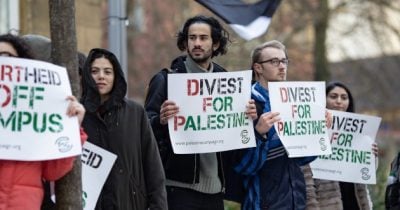Israeli Violence in Arab Cities Reaches Intolerable Levels

All Global Research articles can be read in 27 languages by activating the “Translate Website” drop down menu on the top banner of our home page (Desktop version).
***
Much is said in the international media about the Palestinian issue, but the internal ethnic crisis in Israel is ignored. Levels of violence against Arabs in Israeli territory have increased exponentially and this has led to the revolt of several social leaders in these Arab communities. The Israeli authorities justify their violence on the basis of a “policy to combat organized crime”, but, in fact, this rhetoric has been used simply to cover up the killings of Arab youth and children.
On March 10, in a shootout in the Arab-Israeli city of Jaljulia, Muhamad Abdelrazek Ades, a 14-year-old teenager was murdered and his friend, Mustafa Osama Hamed, a 12-year-old child, was injured and is hospitalized in serious condition. Local residents accuse the police of having acted negligently and shot indiscriminately at the population. A member of the Muhammad’s family said the boys left the house at the time of the shooting and were hit by about 20 shots at close range. The case would be tragic if it were unique, but this is a growing phenomenon. Muhammad has been the 23rd fatal victim of Israeli police violence against Arab citizens since the beginning of this year.
More and more young Arabs in Israel are dying in police operations carried out with malpractice and neglect. The head of the Jaljulia city hall, commenting on the case, said that the violence against the Arab community exceeded all possible limits and that the country is at a real civil war. In fact, the situation is one of absolute insecurity for the Arabs. For them there are no laws or guarantees, just endless violence.
The case of Muhammad and Mustafa triggered revolt in the Arab community. Israeli police, on the other hand, respond to criticism only by stating that it was “a mistake” and emphasizing that the families of the youth were involved in organized crime. And, in fact, this has been the practice of the Israeli authorities in cities with an Arab majority: systematically exterminating young people whose families are supposed to be involved in the crime. The high degree of marginalization and exclusion to which the Arabs are subjected on Israeli soil makes organized crime a recurrent practice in some of these communities, especially with regard to economically motivated crimes. However, the Israeli police does not act to combat such crimes using intelligence techniques or investigating the real offenders, but simply systematically exterminating members of these communities, in an act of true ethnic and social cleansing.
Police violence is also intense when Arabs take to the streets to protest and claim their civil rights. In Umm al Fahem, in northern Israel, protests have been almost daily. In a recent demonstration, the number of 10,000 participants was reported, a record for popular demonstrations in these regions. The reason for such an exponential increase is certainly due to the fact that weeks ago, in protests with a much smaller number of participants, police officers wounded 35 protesters, even though the acts were peaceful. In the same vein, after Muhammad’s death, a general strike was declared in Jaljulia. The unnecessary violence of the police only encourages more and more people to take to the streets and with this an endless cycle of popular dissatisfaction and police brutality emerges.
In institutional politics, the Arab community is agitated as much as possible. Community members in Parliament have publicly condemned the recent attacks. The Arab Deputy Aida Touma Silman made harsh statements against the Israeli police, but also emphasized the importance of fighting organized crime, saying that Arab criminals are also responsible for the killings. Although combating all forms of crime is necessary in any region of the planet, it is important to note the high degree of asymmetry in police violence. There is nothing that can explain how a child is shot 20 times at close range simply because his family is involved with criminal organizations.
In parallel to the unrest, Israeli Prime Minister Benjamin Netanyahu announced last week that his government will invest around 45 million dollars to combat violence in the Arab cities. The Arab community leaders did not interpret the government’s attitude as positive, as they rightly believe that this money will be used not to improve social rates in these cities, but to further arm the police and generate more chaos and violence.
In fact, international society remains silent on this, when it should not. Tel Aviv is responsible for the death of every Arab youth. When the policemen who executed the shots against children are spared from any punishment, the state practically takes part in favor of the violence.
*
Note to readers: please click the share buttons above or below. Forward this article to your email lists. Crosspost on your blog site, internet forums. etc.
This article was originally published on InfoBrics.
Lucas Leiroz is a research fellow in international law at the Federal University of Rio de Janeiro.
Featured image is from Palestine Solidarity Campaign

